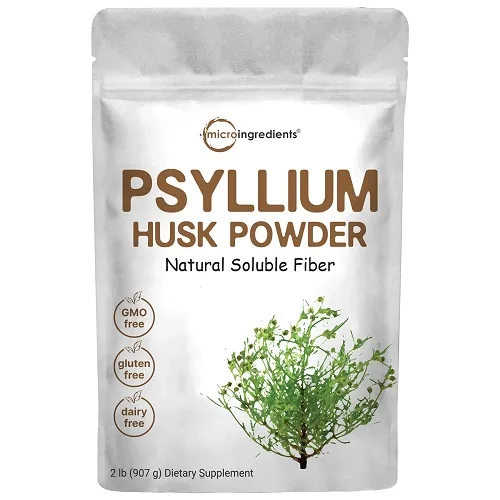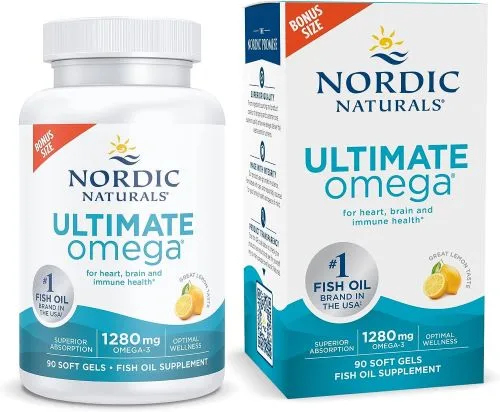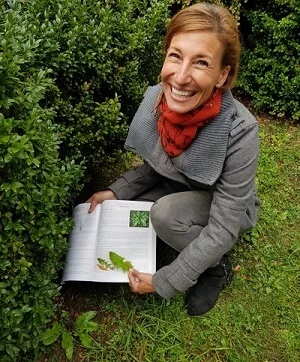8 Best Supplements for Diverticulosis (Diverticular Disease)
Proven Supplements to Enhance Gut Health and Manage Symptoms
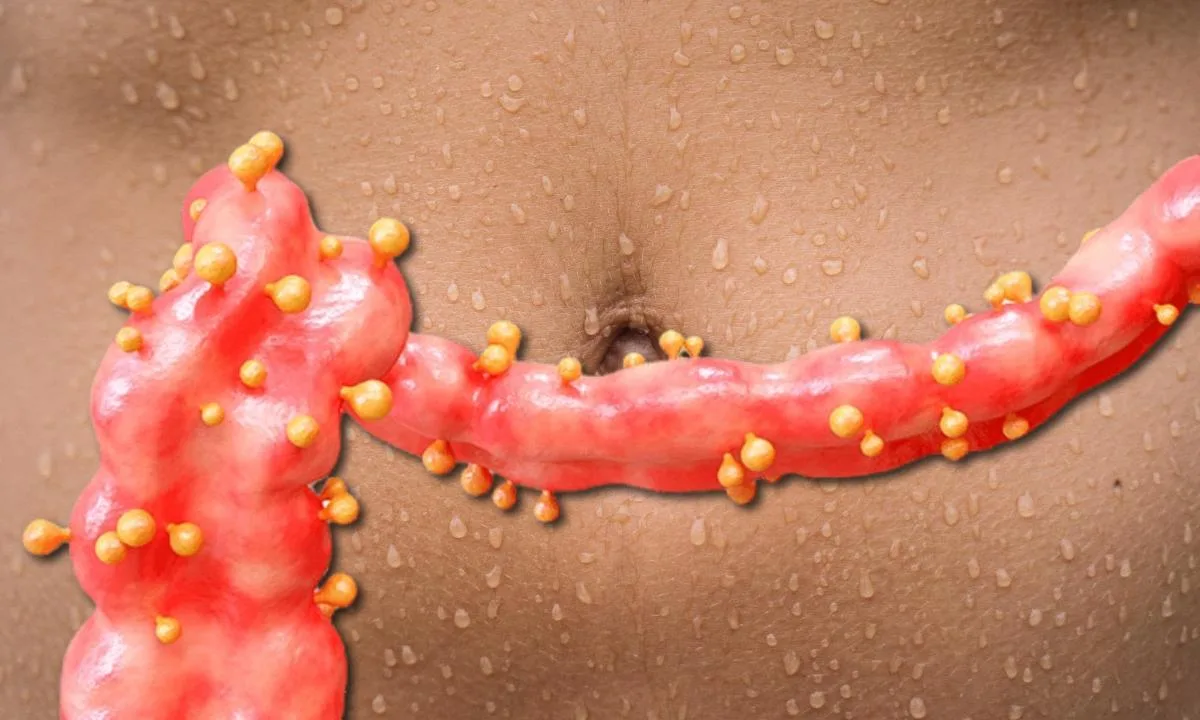
Best supplements | Foods to avoid | Natural remedies | About Diverticulosis | Treatments | Conclusion
Looking to manage diverticulosis? In this article, we’ll explore the best supplements for diverticulosis as well as explain what the symptoms and causes of diverticulosis are and what are the differences between diverticulosis and diverticulitis.
You’ll also learn about effective natural remedies and diet tips to ease diverticulosis symptoms.
Best supplements for diverticulosis
Here are the best supplements for Diverticulosis. After the table, there is a more detailed explanation for each supplement.
| Supplement | Benefits | Recommended Supplement |
|---|---|---|
| Psyllium Husk | Psyllium husk aids digestion by ensuring smooth stool movement, reducing pressure on intestinal walls, and preventing pouch formation, thus lowering the risk of diverticulitis. | 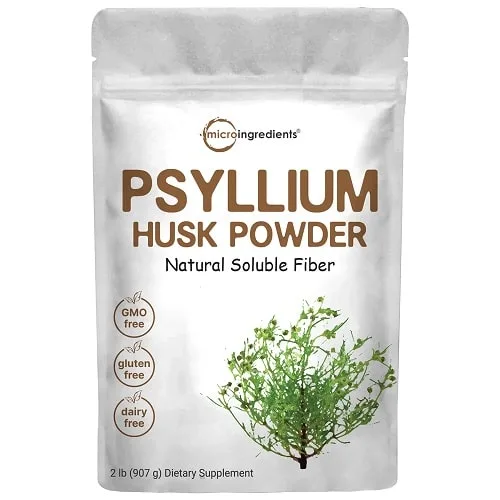 Psyllium Husk Powder |
| Probiotics | Probiotics like Lactobacillus acidophilus help maintain gut health and may keep diverticulitis symptoms at bay by balancing intestinal bacteria. | 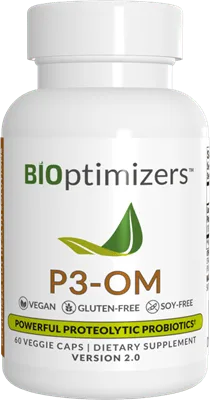 P3-OM Probiotics by Bioptimizers |
| L-Glutamine | Glutamine supports gut health by maintaining the mucosal wall, aiding cell growth, and reducing inflammation, which can benefit those with diverticulosis. | 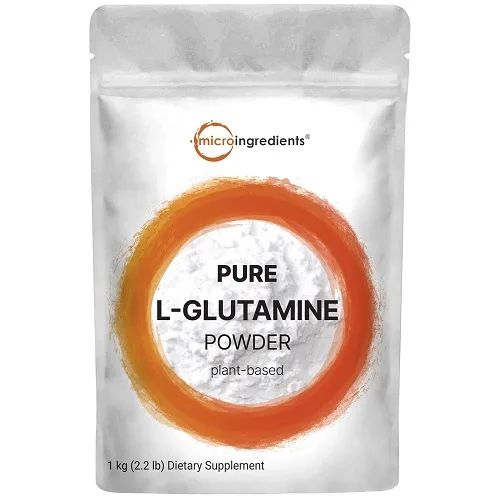 Micro Ingredients L-Glutamine Powder |
| Omega-3 Fatty Acids | Omega-3s reduce inflammation in the intestines, helping to alleviate symptoms and manage diverticulosis by incorporating anti-inflammatory properties. |  Nordic Naturals Ultimate Omega |
| Butyrate | Butyrate strengthens gut health by nourishing colon cells and reducing inflammation, beneficial for those with diverticulosis. | 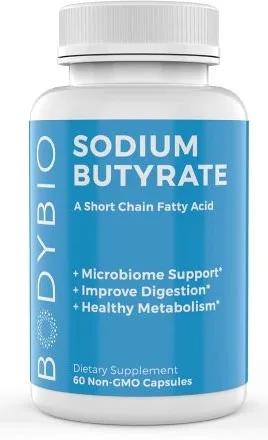 BodyBio Gut Health Supplement |
| Aminosalicylic Acid | This acid helps manage diverticulosis symptoms by reducing abdominal pain and inflammation due to its anti-inflammatory and immunomodulatory properties. | Mesalamine (consult healthcare provider) |
| Curcumin | Curcumin, found in turmeric, has anti-inflammatory effects that can help manage symptoms of diverticulosis by inhibiting inflammatory chemicals in the body. | 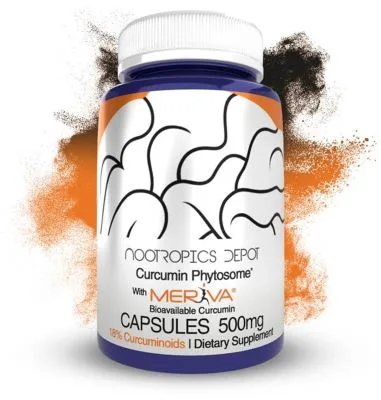 Curcumin Phytosome Capsules, 500mg |
| Magnesium | Magnesium supports neuromuscular function and helps regulate bowel movements, which is essential for managing diverticulosis and preventing muscle spasms. | 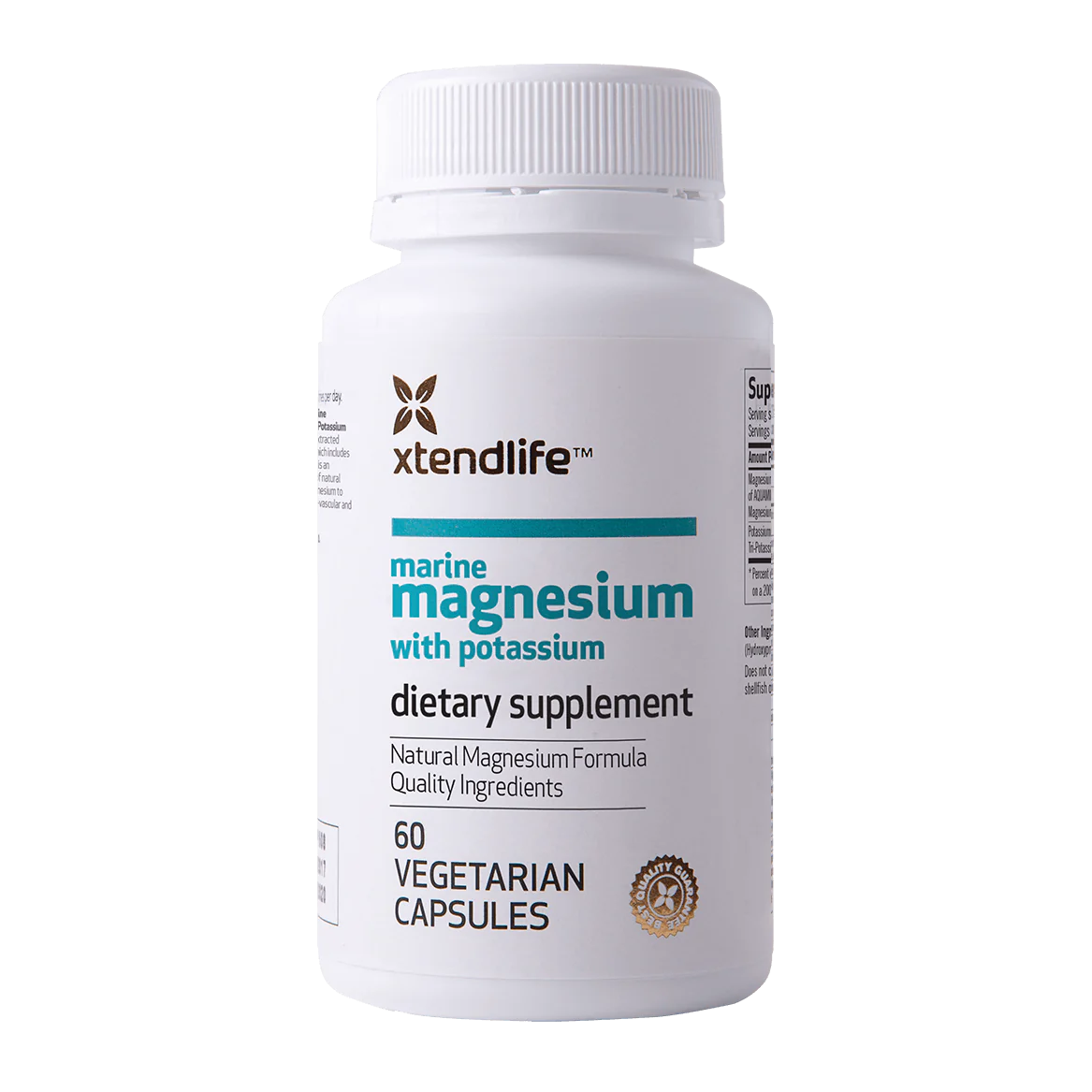 Marine Magnesium with Potassium |
| Vitamin D | Adequate vitamin D levels are crucial for overall health, including the digestive system, and can reduce the risk of diverticulitis and its complications. | 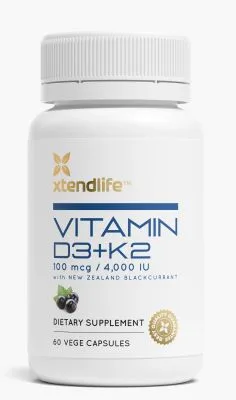 Vitamin D2 or Vitamin D- |
1. Psyllium Husk
Adding psyllium husk to your diet can help prevent and manage diverticulosis by promoting efficient digestion and reducing pressure on your intestinal walls.
Psyllium husk acts as a valuable supplement for diverticulosis because it helps move stool through your system smoothly, preventing the formation of pouches on the intestinal walls. By guiding the stool directly through the intestines, psyllium husk also lowers the risk of diverticulitis.
It does this by preventing the stool from accumulating in the pouches, which is believed to be a major cause of infection. Adding psyllium husk to your diet can be an effective way to manage diverticulosis and reduce the risk of complications.
Here’s our recommended Psyllium Husk supplement:
2. Probiotics
The best supplements for diverticulosis include probiotics such as Lactobacillus acidophilus and bifidobacteria.
These probiotics help maintain the health of the intestines and can be beneficial for individuals with diverticulosis.
In a study, it was found that people who’d diverticulitis were more likely to remain symptom-free after one year when they were treated with specific probiotics like Lactobacillus casei and mesalazine.
However, it’s important to note that some probiotics may not be suitable for individuals with severely suppressed immune systems. Therefore, it’s recommended to consult with a healthcare professional before starting any probiotic supplementation for diverticulosis.
Overall, incorporating probiotics into your diet may be a helpful addition to managing diverticular disease and promoting intestinal health.
Best Probiotics Supplement
3. L-Glutamine
Glutamine is an amino acid that’s naturally found in the body and plays a role in maintaining proper intestinal function.
While there’s currently no evidence that glutamine specifically helps reduce symptoms of diverticular disease, it may still be beneficial for overall intestinal health.
Recent research indicates that glutamine, an amino acid, benefits gut health by supporting the microbiome, mucosal wall integrity, and reducing inflammation via the gut-brain connection through the vagus nerve. [1]
Glutamine has been also found to be a super important amino acid for our guts. It helps our gut cells grow, keeps them strong, and stops inflammation. When we’re really sick or have gut problems, our glutamine levels drop. Scientists have even looked into giving people more glutamine to help them get better. [2]
It’s important to note that individuals with certain medical conditions, such as diabetes, seizures, liver disease, or a history of mania or manic episodes, shouldn’t take glutamine. As with any supplement, it’s always best to consult with your healthcare provider before starting any new regimen.
Recommended L-Glutamine Supplement
3. Omega-3 fatty acids
Taking omega-3 fatty acids as a supplement can provide relief from inflammation caused by diverticulosis.
Omega-3 fatty acids, commonly found in fish oil, have been shown to have anti-inflammatory properties. By incorporating omega-3 fatty acids into your diet or taking a supplement, you may help reduce inflammation and alleviate symptoms associated with diverticulosis.
It’s important to note that omega-3 fatty acids are different from omega-6 fatty acids, which can actually increase inflammation.
Therefore, it’s recommended to focus on sources of omega-3 fatty acids, such as fish oil, rather than omega-6 fatty acids found in meats and dairy products.
However, if you’re on blood-thinning medication, it’s important to consult your doctor before taking high doses of a fish oil supplement, as omega-3 fatty acids have a blood-thinning effect and can interact with certain medications.
Overall, incorporating omega-3 fatty acids into your diet can be a beneficial way to manage inflammation caused by diverticulosis.
Recommended Omega-3 Supplement:
4. Butyrate
Butyrate, a short-chain fatty acid, has beneficial effects on intestinal cells and plays a role in maintaining intestinal health. Numerous studies support the value of butyrate in digestive disorders, including diverticulosis.
Butyrate, produced in our guts when we eat fiber, is like fuel for cells in our colon. It also has some special powers – it can stop certain processes that cause inflammation and talk to specific receptors.
Having enough butyrate is really important for our gut health. It helps our gut cells work well, reduces inflammation, keeps our gut strong, and makes sure our gut bugs behave.
Studies have shown that a sodium butyrate supplement can also reduce episodes of diverticulitis, the inflammation of these pouches.
Try incorporating a daily dose of a butyrate supplement into your routine to help improve symptoms of diverticulosis.
Recommended Butyrate Supplement:
5. Aminosalicylic Acid
Aminosalicylic Acid can be an effective supplement for managing symptoms of diverticulosis.
Researchers conducted two studies involving over two hundred patients and found that Aminosalicylic Acid, also known as mesalamine, helped control abdominal pain in patients with diverticulitis. It has anti-inflammatory and immunomodulatory properties, making it a potential treatment option for this condition.
In addition, a low dose of 3mg/day of Aminosalicylic Acid had a preventive effect. This means that it could potentially help reduce the occurrence of diverticulitis in individuals with diverticulosis. These findings suggest that Aminosalicylic Acid may be a beneficial supplement for individuals managing symptoms of diverticulosis.
However, it’s important to consult with your healthcare provider before starting any new supplement regimen to determine if Aminosalicylic Acid is appropriate for your specific condition.
6. Curcumin
If you’re looking for a natural supplement for managing symptoms of diverticulosis, consider incorporating curcumin into your daily routine.
Studies in animal models have shown that curcumin can inhibit tumor necrosis factor-alpha, which is one of the inflammatory chemical messengers associated with diverticular disease and acute diverticulitis. This suggests that curcumin may have anti-inflammatory effects that could potentially help alleviate symptoms of diverticulosis.
While more research is needed to fully understand the benefits of curcumin in humans with diverticular disease, preliminary evidence is promising.
Curcumin is a compound found in turmeric, a spice commonly used in Indian cuisine. It’s available in supplement form and can be easily incorporated into your daily routine.
As always, it’s important to consult with your healthcare provider before starting any new supplement regimen.
Recommended Curcumin Supplement
7. Magnesium
To regulate your bowel movements and alleviate symptoms of diverticulosis, consider incorporating magnesium supplements into your daily routine, as it supports neuromuscular system function and regulates peristalsis.
Magnesium is essential for muscle and nerve functions, including those of the digestive system. Insufficient magnesium can lead to stiffness, tightening, and spasms in the muscles.
Magnesium glycinate is a better alternative to magnesium salts, as it’s more absorbable and provides additional benefits for mood and sleep regulation. It effectively crosses the intestinal membrane and the blood-brain barrier.
Taking magnesium in divided doses is more effective for bowel movement regulation, as small doses are absorbed by the body to regulate muscle tone. High doses of magnesium may have an osmotic effect, causing water-pulling and laxative effects.
Overall, magnesium supplementation can be beneficial in managing diverticulosis and promoting bowel regularity.
Recommended Magnesium Supplement
8. Vitamin D
If you’re looking to increase your vitamin D levels to reduce the risk of diverticulitis and its complications, consider taking vitamin D supplements or incorporating vitamin D-rich foods into your diet such as fatty fish, beef liver, eggs, cheese, some mushrooms, and fortified foods.
Vitamin D plays a crucial role in maintaining overall health, including the health of the digestive system. Low levels of vitamin D have been associated with an increased risk of diverticulitis and its complications.
To ensure an adequate intake of vitamin D, you can opt for supplements that contain either vitamin D-2 or vitamin D-3.
Foods to avoid with diverticulosis
When managing diverticulosis, it’s important to be mindful of your diet to prevent flare-ups and complications. While individual sensitivities may vary, here are some general guidelines on foods to avoid:
- Processed Foods: Limit or avoid foods that are high in refined sugars, unhealthy fats, and artificial additives. This includes many packaged snacks, sugary beverages, and processed meats.
- Red Meat: While lean meats in moderation can be part of a healthy diet, red meats like beef and pork may be harder to digest for some people with diverticulosis. Try to choose lean cuts and limit your intake.
- Dairy Products: Some individuals with diverticulosis may be lactose intolerant or sensitive to dairy products. If you experience digestive discomfort after consuming dairy, consider switching to lactose-free options or plant-based alternatives like almond or soy milk.
- Spicy Foods: Spicy dishes can irritate the digestive tract and potentially trigger symptoms. If you enjoy spicy foods, try to moderate your consumption and pay attention to how your body reacts.
- Nuts and Seeds: Historically, doctors often recommended avoiding nuts and seeds due to concerns about them getting lodged in diverticula and causing inflammation. However, recent research suggests that small, well-chewed quantities of these foods may not be problematic for most people with diverticulosis. Consult with your healthcare provider for personalized advice on nuts and seeds.
- Popcorn: The hulls of popcorn can be sharp and may pose a risk of getting stuck in diverticula, potentially leading to inflammation or infection. If you enjoy popcorn, make sure it’s well-popped to minimize the risk.
- Alcohol: Excessive alcohol consumption can irritate the gastrointestinal tract. If you drink alcohol, do so in moderation, and be mindful of how it affects your symptoms.
It’s crucial to note that individual dietary triggers can vary, and what works for one person may not work for another. It’s advisable to keep a food diary to track which foods seem to aggravate your symptoms and discuss your findings with a healthcare professional.
They can help you create a personalized diet plan that suits your specific needs and helps manage your diverticulosis effectively.
Additionally, staying well-hydrated and maintaining a healthy weight can also contribute to better overall digestive health.
Natural remedies for diverticulosis
If you’re looking for natural remedies for diverticulosis, there are several options that may help alleviate symptoms and promote digestive health.
- Flaxseed (Linum usitatissimum) is recommended for its high fiber content, which can help soften stool and promote regular bowel movements. It is noted for its anti-inflammatory properties and potential to alleviate symptoms like abdominal pain and bloating. [1] [2] [3]
- Slippery Elm (Ulmus fulva) is described as a “demulcent” – a substance that has soothing or protective properties. It can soothe irritated tissues in the digestive tract. It has historical usage in traditional medicine for digestive issues, and its mucilage content is believed to provide protective effects. [3] [4]
- Cat’s Claw (Uncaria tomentosa) is noted for its anti-inflammatory properties, which can help relieve symptoms of diverticulosis. However, caution is advised for pregnant women and those with autoimmune diseases. [2] [5]
- Wild Yam (Dioscorea villosa) is suggested for its fiber content and potential anti-inflammatory effects. While it may contribute to digestive health, there aren’t any scientific evidence supporting its direct benefits for diverticulosis.
- Marshmallow (Althaea officinalis) is used for its soothing properties and is traditionally used to protect the digestive system. [6]
- Chamomile (Matricaria recutita) is commonly consumed as tea and is noted for its calming effects on the digestive system. However, it can interact with blood-thinning medications and should be avoided by those with allergies to related plants. [7]
- Licorice (Glycyrrhiza glabra) is mentioned by Dr.Axe for its potential to lower stomach acid levels, relieve heartburn and act as a mild laxative to help clear your colon of waste. [8]
- Belladonna (Atropa belladonna) According to Bayview Pharmacy, Belladonna Extract suppositories help reduce inflammation in the digestive tract. This can greatly ease symptoms of conditions like irritable bowel syndrome, constipation, spasmodic colitis, ulcerative colitis, and diverticular disease. However, it is classified as toxic and should only be used under professional supervision. [9] [10]
- Bryonia and Colocynthis are included as remedies for specific abdominal pains associated with diverticulosis. While these remedies have historical usage, scientific validation is limited.
- Frankincense (Boswellia serrata) is highlighted for its anti-inflammatory properties, with some studies suggesting it may help reduce inflammation in the gastrointestinal tract. [11] [12]
What is Diverticulosis?
Diverticulosis is the formation of abnormal pouches in the wall of your bowel. These pouches, called diverticula, can develop in any part of your digestive tract, but they’re most commonly found in the large intestine.
When you have diverticulosis, these pouches can become inflamed or infected, leading to a condition called diverticulitis.
Risk factors for diverticulitis include aging, obesity, smoking, lack of exercise, and a diet high in animal fat and low in fiber.
It’s important to note that diverticulosis itself is usually asymptomatic, meaning it doesn’t cause any noticeable symptoms. However, when diverticulitis occurs, it can cause symptoms such as abdominal pain, bloating, constipation, diarrhea, flatulence, and minor bleeding in the feces.
If you experience any of these symptoms, it’s important to seek medical attention for proper diagnosis and treatment.
Diverticulosis treatment?
Diverticulosis, is often managed through diet and lifestyle changes.
Experts from Mayo Clinic and WebMD suggest that adopting a high-fiber diet is a key strategy. High-fiber foods such as green vegetables, oat bran, and supplements like psyllium can help improve bowel habits and alleviate mild symptoms.
The National Institute of Diabetes and Digestive and Kidney Diseases (NIDDK) also recommends fiber supplements, along with probiotics.
These dietary adjustments help ensure regular bowel movements and reduce the risk of the diverticula becoming inflamed or infected, a condition known as diverticulitis.
Diverticulosis vs Diverticulitis
Diverticulosis refers to the development of small pouches, called diverticula, in the colon wall. It’s usually asymptomatic and may be detected during routine tests.
On the other hand, diverticulitis occurs when these diverticula become inflamed or infected. This condition causes sudden and severe abdominal symptoms, such as abdominal pain, fever, nausea, and vomiting.
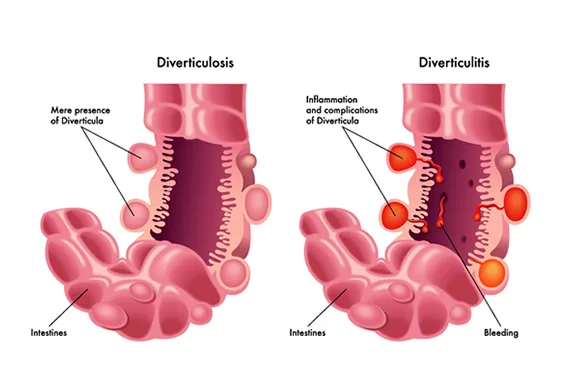
For those with more severe or recurring symptoms, medical treatments may be necessary. According to WebMD and Mayo Clinic, antibiotics can be prescribed to manage infections, and in some cases, surgery might be required to remove the affected sections of the colon or to drain abscesses.
Mayo Clinic highlights that surgery is often performed using minimally invasive techniques called laparoscopic surgery, which involves small incisions.
Recent developments also point to the use of specific medications like rifaximin, which has proven successful in treating severe symptoms, although it can be expensive.
NIDDK adds that anti-inflammatory medicines and pain relievers like acetaminophen may be suggested to ease discomfort.
Conclusion
In conclusion, while there’s no cure for diverticulosis, certain supplements can help manage symptoms and promote digestive health. Probiotics, fiber supplements, and omega-3 fatty acids have shown potential benefits in reducing inflammation and supporting bowel regularity.
It’s important to consult with a healthcare professional before starting any new supplements to ensure they’re safe and appropriate for your individual needs.
Additionally, adopting a diet rich in fiber and avoiding certain trigger foods can also help manage diverticulosis symptoms.
The Lost Book of Herbal Remedies
You’ll find 800+ beneficial plants and remedies in “The Lost Book of Herbal Remedies“.
It includes recipes of tinctures, teas, decoctions, essential oils, syrups, salves, poultices, infusions and many other natural remedies that our grandparents used for centuries.
What’s also special about this book is that it has between 2 and 4 high definition, color pictures for each plant and detailed identification guidelines to make sure you’ve got the right plant.
Read Next

